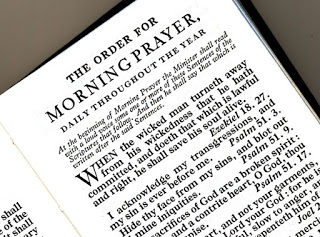"A High Churchman of the old school": Lonsdale and Old High/New Low

Prior to Lent, laudable Practice shared extracts from two sermons by John Lonsdale, an associate of the Hackney Phalanx and later Bishop of Lichfield (1843-67). The Life of John Lonsdale (1868), by his son-in-law, provides an interesting insight into Lonsdale as a representative of the Old High tradition. The work describes Lonsdale as "a High Churchman of the old school, broadened by experience, and inclining always to moderation and comprehension". In this, he was not dissimilar from other bishops in the Old High tradition as, for example, Christopher Bethell (Bishop of Gloucester then Exeter,1824-30) and William Jacobson (Bishop of Chester, 1864-84). On ritual matters, it is stated that this "High Churchman of the old school" did not at all identify with ceremonies the Tractarians imported into parish churches from cathedrals, such as bowing to the Holy Table or facing east for the Creed: Neither did he, either in the reading desk, or at the Table, or in his ...
















